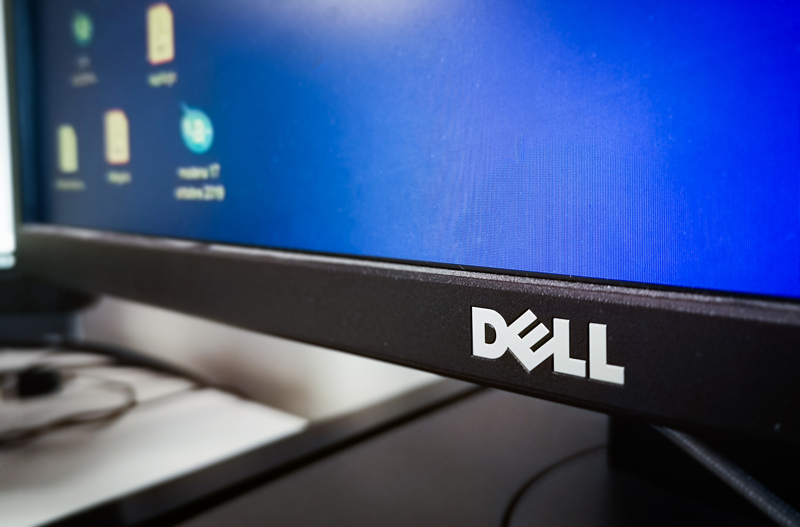How can a company’s neurodiversity hiring program be evaluated? In part, by listening to its participants’ stories. Alex Sobil, Cybersecurity Analyst at Dell Technologies, is a case in point. His is a success story as inspirational as it is indicative of a truly inclusive workplace.

Sobil works on the Identity Governance and Administration corporate solutions team in Dell’s Security & Resiliency Organization. He leads the quality control testing process for new computer applications, ensuring that team members have proper access to these applications while helping to keep Dell secure. He thrives in this role, in part because it aligns with his ambition to equip his colleagues at Dell with everything they need to be successful.
Sobil found out about the Dell Technologies Neurodiversity Hiring Program from a college career resource while searching for meaningful work after graduation. The program provides career readiness training, internships, and full-time career opportunities for autistic and other neurodiverse individuals. He was invited to participate in a two-week session during which he learned about career opportunities at Dell, met with hiring managers and worked on real-world projects. This format enabled him to meaningfully showcase his unique skills, both as an individual and within a group dynamic, and under considerably less pressure than is often felt during a traditional job interview.
As an autistic, Sobil admits that it is difficult for him to express his value to a potential employer. While in Dell’s Neurodiversity Hiring Program, he worked with managers and mentors who understand the learning and thinking differences of neurodivergent individuals and received on-the-job training with a dedicated career coach. He describes the work environment as one that not only meets his needs but champions his passion, knowledge, and unique perspective, motivates him to expand his skillset, and builds his confidence.
“Outside the box” thinking is a common attribute among neurodivergent individuals and Sobil is no exception. He regards finding and solving security defects through unconventional, creative methods as being among his finest accomplishments. Sometimes the issue at hand cannot be solved by classic techniques, in which case a proactive approach becomes necessary. He is able to anticipate the potential challenges he may need to address and places himself in the application users’ shoes by considering the unique situations in which they may find themselves. This approach results in the discovery of security defects significantly sooner than would otherwise be the case.
A neurodiversity hiring program is only going to be as successful as the degree to which the people who are responsible for making it tick are committed to its success, and the extent to which the workplace culture is accepting of it. Put another way, those with whom neurodivergent participants in these programs associate will either make or break them. For Sobil, those with whom he associates at Dell align quite nicely with the former outcome.
Sobil meets with his manager on a weekly basis to discuss his trainings, workload, and projects and is given ample opportunity to discuss any additional supports he feels he may need. His manager was trained as to how to properly support neurodivergent employees, always listens to what he has to say and proposes solutions when necessary. Sobil did not have to disclose his diagnosis or justify his capabilities. Instead, he was able to immediately apply his strengths and provide immediate value.
Sobil also has a job coach who helps him develop interpersonal skills and deal with new challenges of which there have been many as a result of the pandemic. In addition, he is paired with a mentor who teaches him, among other things, how to network with his colleagues.
As for Sobil’s peers and team members, he feels empowered to reach out to them whenever he requires guidance as to how to best approach and execute his projects. They are always respectful and kind such that he does not feel pressured to do work for which he feels unprepared. His colleagues have helped him expand his understanding of cybersecurity and of new technologies in this space.
Sobil benefits from accommodations which enable him to be at his best. Regrettably, accommodations granted to neurodivergent individuals for this reason can lead to jealousy and resentment if the workplace culture is less than accepting of neurodiversity. Not the case for Sobil and the IGA corporate solutions team. In his view, the accommodations he receives are not even noticed, primarily because they contribute to his productivity and to his ability to support his fellow teammates. In a climate of acceptance, understanding and commitment to excellence, accommodations benefit not only their intended recipients but also those with whom they collaborate.
A truly diverse, equitable and inclusive workplace, and a success story that proves it!
Sam Farmer is a neurodiversity community self-advocate, writer/author, and public speaker. Diagnosed later in life as autistic, Sam shares stories of lived experiences, ideas, and insights as to how one can achieve greater happiness and success in the face of challenge and adversity. A Long Walk Down a Winding Road – Small Steps, Challenges, & Triumphs Through an Autistic Lens is his first book. Visit samfarmerauthor.com to learn more.





